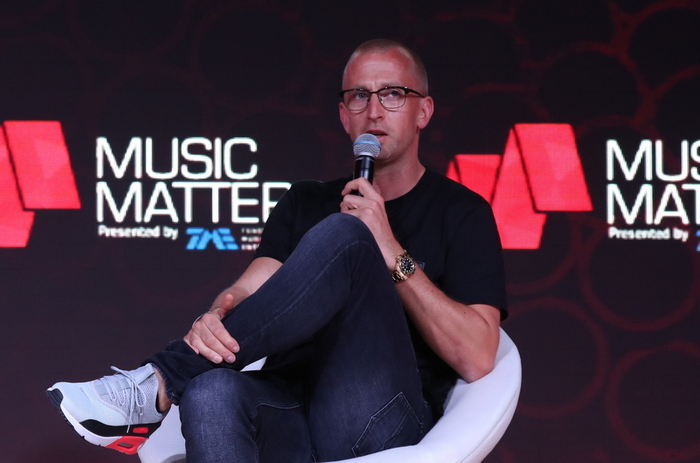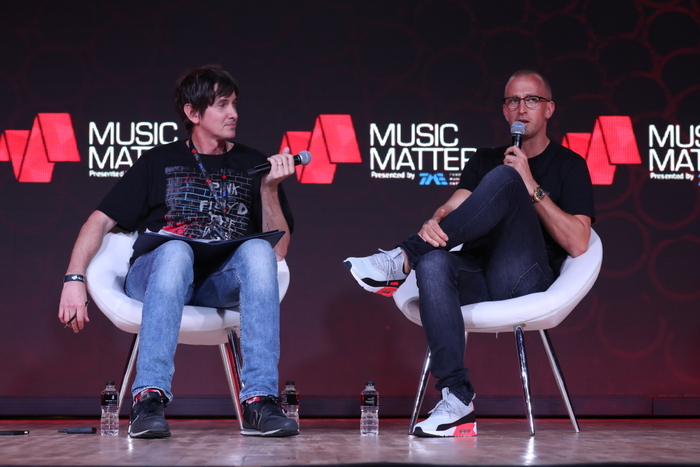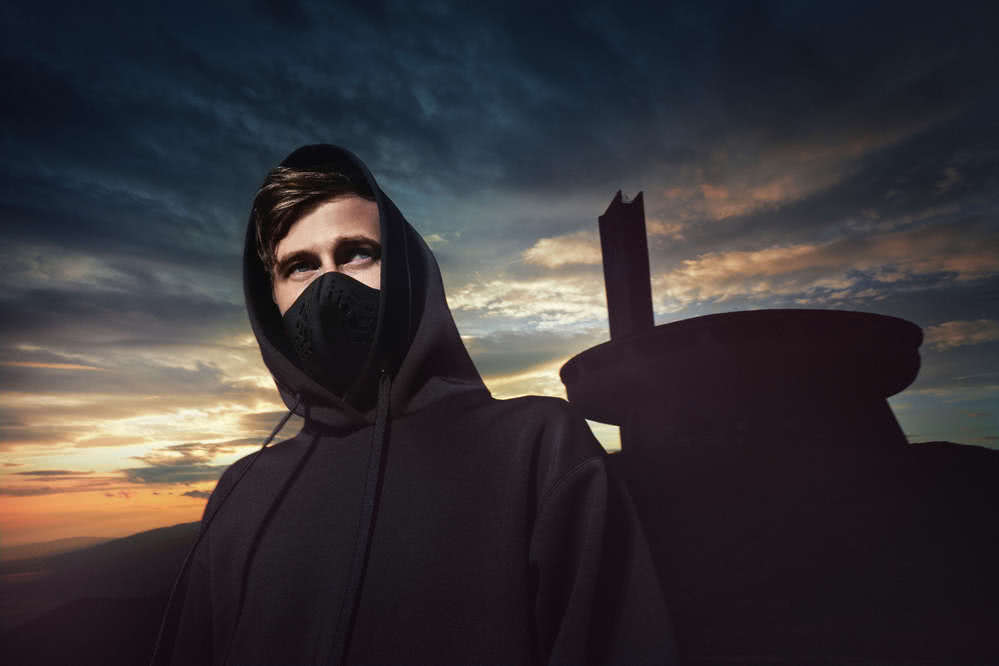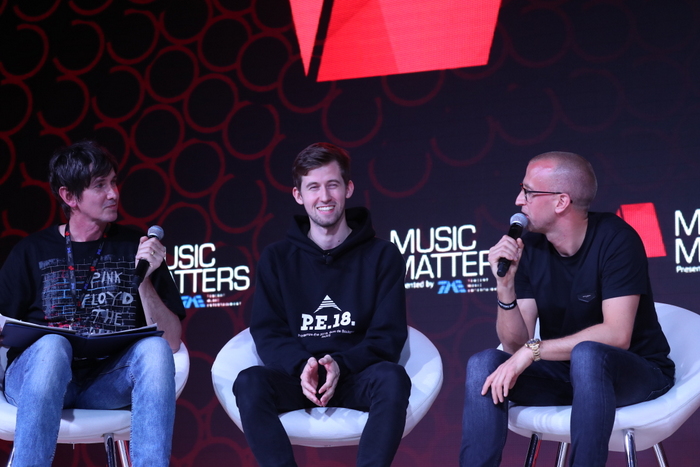Liquid State’s Gunnar Greve talks China, streaming and Alan Walker: ‘You have to release music at a higher frequency’

Gunnar Greve is a music industry polymath. A man of many hats…and he wears them all with distinction. Born and raised in Norway, Greve is a songwriter, producer and creator. He has extensive experience in TV, and he runs the full-service music company MER, which counts EDM wunderkind Alan Walker among its clients. The English-Norwegian DJ and producer has racked up more than 9 billion streams across all platforms, making the 21-year-old one of the most streamed artists on the planet. Earlier this year, Greve was appointed managing director of Liquid State, the new joint venture between Tencent and Sony Music Entertainment, which has tapped Walker as “global collaborator,” and counts Chris Lee (Chinese mainland), BIGBANG’s Seungri (South Korea) and Nicholas Tse (Hong Kong and Taiwan) as ambassadors. A full swag of releases are in the pipeline.
The electronic dance music business is exploding in China right now, and Tencent is poised to trigger a bigger boom. Just this week, Tencent Music Entertainment Group filed its F-1 document Tuesday with the Securities and Exchange Commission, paving the way for its public listing on Wall Street.
Greve and TIO’s Lars Brandle recently sat down to talk shop during Music Matters in Singapore, their keynote presentation kicking off the Tencent China Music Forum on the conference’s final day.
TIO: You worked in TV for about a decade. What lessons could our industry learn from it?
Gunnar Greve: I was fortunate and privileged to be sitting on the jury being as a judge on Norwegian Idol for some years and working as a TV host for a couple of shows, some of which are in production. In the Nordics, we became digital at an early stage. Daniel Ek started Spotify in 2008 but we’ve been (digitalized in TV) long before that. When you come into the digital age, you need to understand pretty quickly that you need to create attributes, you need to create co-creations around that Holy Grail which is…the song, and the music. But the music needs content around it. Video and visual and audio-visual products and content is, in my opinion, perhaps the most important part of what an artist needs to do in his day, apart from making great music. So, working in television for a decade, it’s very educated in that we learn how to format, how to tell a story. At the end of the day, whether you’re making a song or creating a talent TV show or putting on a concert, we’re all working with creators that are about telling a story. The narrative is crucial, it’s so important to the story you want to tell.

Lars Brandle and Gunnar Greve
We live in a digital world, where physical formats are like fossils to kids. That said, the industry is buzzing right now.
People have talked about the death of music every time (we’ve changed format), from vinyl to cassette tapes and then on to compact discs. Every time there’s a new phase, a new disruptive change, it also comes with a challenge because you’re used to telling that story, and keeping that narrative in a box. The most important thing with change is to embrace what comes after. Think about the fact the music industry spent millions on CD copy-protection. Kids are just consuming the entertainment and the visual or audio visual entertainment in a different way; the attention span is probably shorter for each piece of entertainment.
(Games and online platforms) is where young consumers are finding their new music and discover artists. They discover on platforms services and apps and outlets that are in any case disruptive, compared to the conventional outlets. You hear a lot of industry executives talking about how, 10 years ago, the artists would go into the studio they’d record a record, give it to the label, put it out, do two weeks of promo, six months on tour then in a year or two go back into the studio and then do it again. That’s definitely not the reality today. You have to be present. You have to release music at a higher frequency. Some labels will say that putting 10 songs out in an album at once is throwing away 9 songs, because you’re only getting attention for one song at a time. That’s changed the entire way we package, promote and distribute music to an audience.
Alan Walker is one of the most-streamed artists in any genre right now. Gaming has played a huge role in his success.
Four years ago, when he was 17, Alan Walker introduced me to the world of gaming and new user-generated content relating to gaming. Gamers are so interested in tech, and because music is so neatly tied in with what they do — I’ve seen and heard 24-hour versions of “Faded,” Alan’s first single, on YouTube — they consume music in different patterns and very alternative ways compared to what we were used to. In that way they’re an extremely early adopting audience and they’re meta consumers in that they consume a lot of music. What I’ve come to learn is also that they’re extremely loyal. There are 25,000-plus songs being released every single day. How can you get that attention, break through the wall and through the sound barrier these days? If you manage to get a follower, you have to convert that follower into a fan. A follower is the most disloyal individual in the universal. He, she or they with one click can chose the next (song). Converting the follower to a fan is extremely important if you want to build a career, longevity a brand as an artist. The gamers have shown me that they’re very loyal, they’ll stick around to see and hear what you have next.

Alan Walker
So, how does an artist like Alan connect with his audience?
The importance of engagement, the key now is, not necessarily for all artist and creators, but for many, especially those whose job is presenting to or attracting a younger 15-25 audience, it’s important to think of it as “creator to co-creator,” and back. The reason for that is, everyone has a smartphone in their pocket, the fans are engaging with the music with dancing videos or covers or whatever, these are all co-creations with the original artists. Those artists who are able and willing to embrace their audience as co-creators, they will find a unique connection with the fans who listen to their music.

Lars Brandle, Alan Walker and Gunnar Greve
We’ve talked about China for many years as a “sleeping giant.” We’re hearing this giant is waking up.
This is the music market of tomorrow, the most exciting, the most vibrant and fastest growing market in the world. And working with a genre that is steadily growing, dance music is one of those genres that is able to translate and work in a global scale regardless of an artist’s origin, where they’re from or what age. It’s the universal language of music. China will become the biggest market in the world.
This article originally appeared on The Industry Observer, which is now part of The Music Network.

































